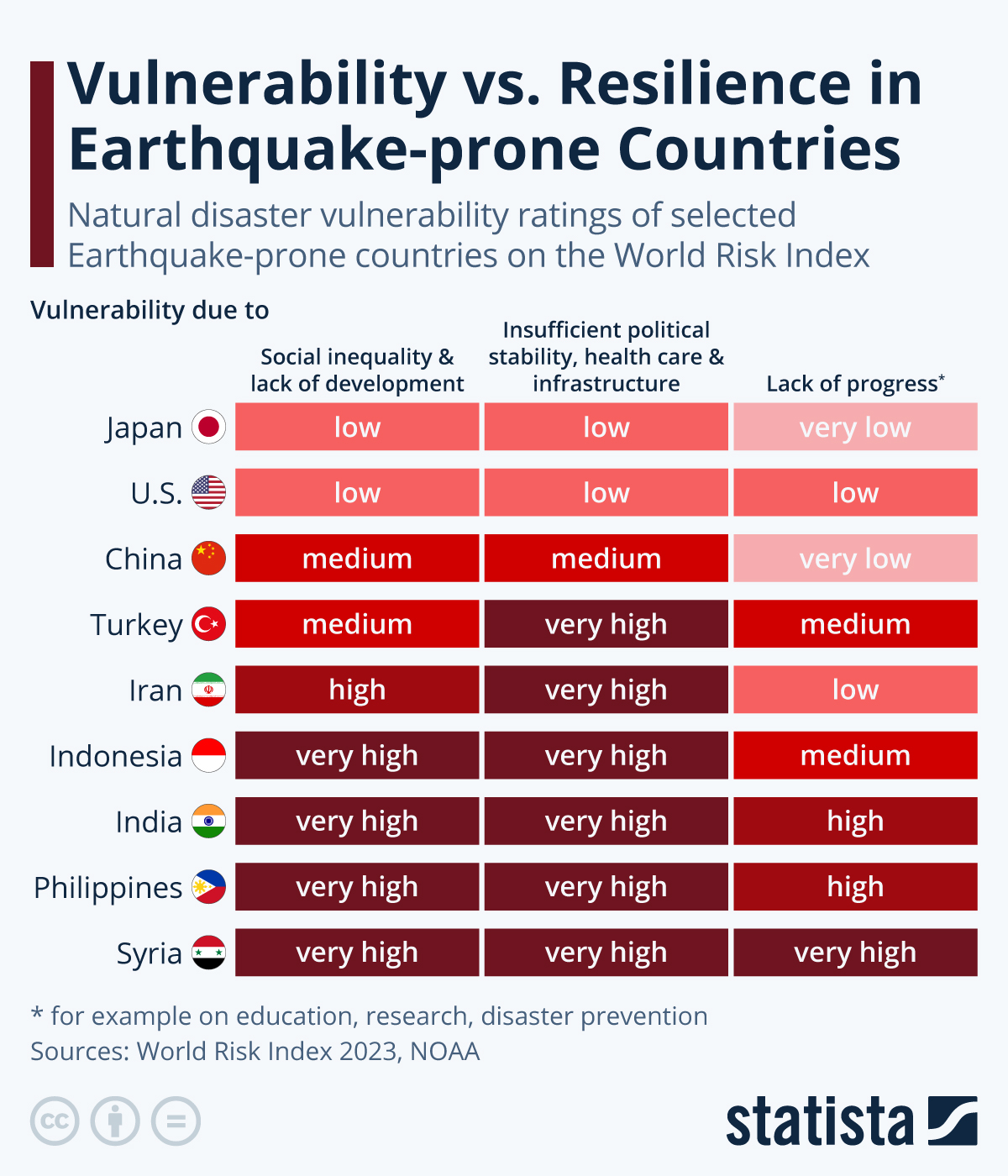Three countries that dealt with major earthquakes in the past 12 months - Syria, Turkey and Japan - have been very differently prepared for the impact. According to the 2023 World Risk Index, Japan is exhibiting "low" disaster vulnerability, while Turkey's has been classified as "high" and Syria's as "very high". A 7.5-magnitude earthquake in Japan on Monday claimed the lives of fewer than 50 people so far, while two quakes of comparable strength in the Turkish-Syrian border region in Feb. 6, 2023, killed almost 60,000.
The vulnerability score is further broken down into three categories - social inequality and lack of development, insufficient political stability, health care and infrastructure as well as lack of progress. In the second category, Turkey was rated as having a "very high" vulnerability to natural disasters. As it became apparent that building codes had been less rigorously enforced than previously thought and that rescue efforts suffered delays, Turkey's lack of progress score was corrected from "low" to "medium" in the most recent edition released by the Institute for International Law of Peace and Armed Conflict at the Ruhr University of Bochum, Germany.
Nations that like Turkey experience many earthquakes - for example China, Japan, the U.S. or Iran - are all rated as highly susceptible to natural disaster by the World Risk Index. Syria is labeled as having a "high" risk of natural catastrophe. While developed nations Japan and the U.S. score lowest for vulnerability, China is also considered relatively well prepared.





















